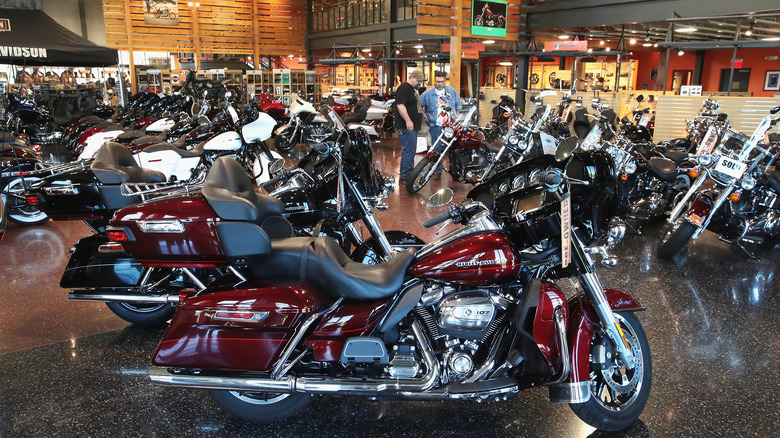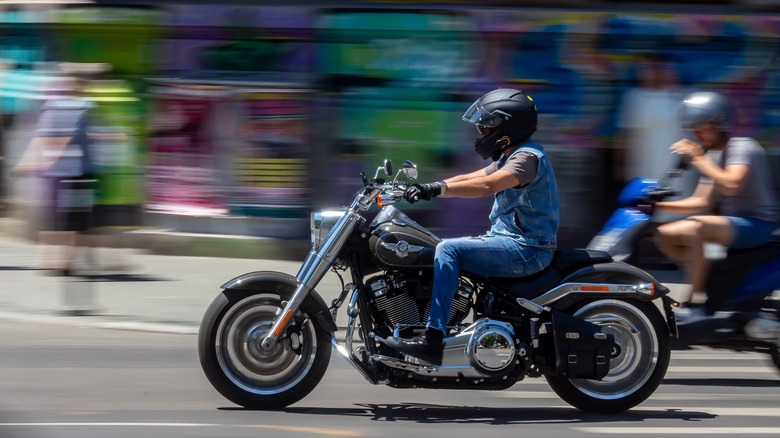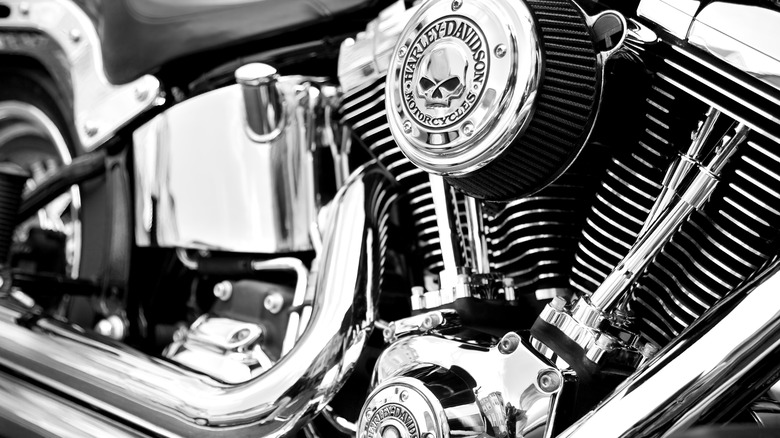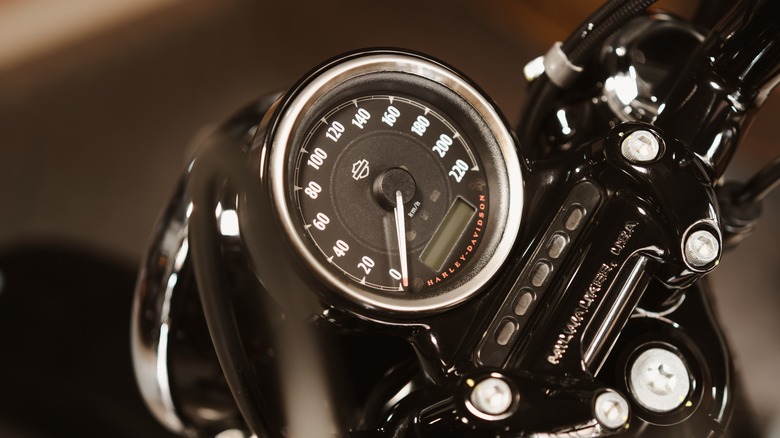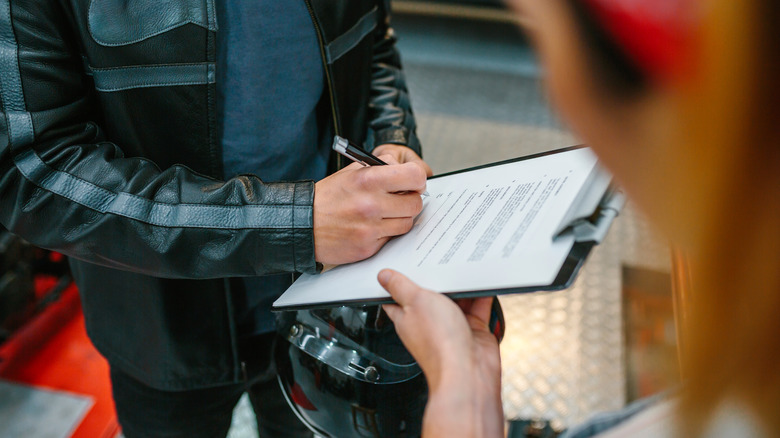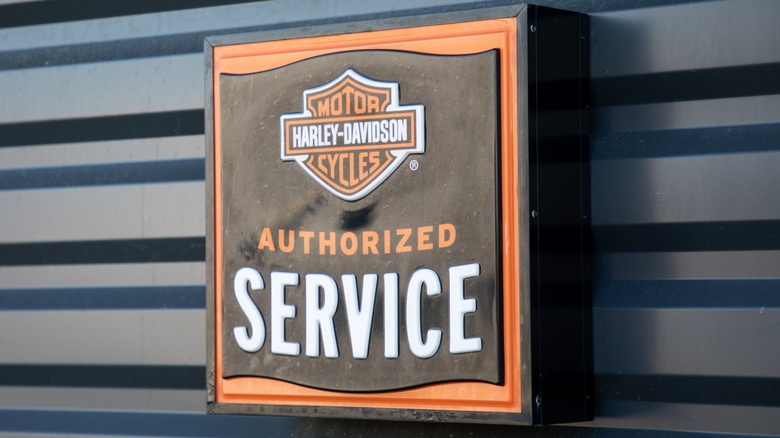Are Older Harley-Davidsons Worth It? 5 Things To Consider When Buying A Used Model
Whether you're a casual or hardcore fan of the motorcycle-riding lifestyle, there's probably at least a small part of you that would love to own a Harley-Davidson motorcycle. It is one of the oldest motorcycle brands in the world, dating back to the turn of the 1900s, so it's a proud pedigree, to say the least. Of course, buying a brand new motorcycle from an accredited brand isn't cheap, with even a simple Harley-Davidson bike like a Softail Standard running $14,999 off the lot.
If you're looking to offset that cost, then buying a used Harley-Davidson is a smart idea. As with used cars, buying a used motorcycle will save you some cash, not to mention keep vehicles from being unnecessarily scrapped. While buying used is cheaper, though, it does come with its own set of homework, a checklist of verifications you need to complete to ensure the vehicle's condition, safety, and efficacy. Before and while you browse for a used Harley-Davidson bike, you should obtain satisfactory answers to all of the following questions.
What kind of Harley-Davidson bike should you be riding?
First and foremost, you shouldn't buy a used Harley-Davidson just because it's a used Harley-Davidson. While the brand is best known for its muscular choppers, it actually offers quite a wide array of vehicles for different riding styles and traveling purposes, ranging from compact day trippers to the stout road hogs we know and love. Assuming you're buying this used Harley to ride it rather than collect it, you should do some research to ensure it's a bike that you can handle.
If you're not a regular rider of Harley-Davidson bikes, or a new motorcycle rider entirely, it's not a great idea to buy a ride intended for a seasoned rider. Something like a Road Glide ST, for example, might be a little too muscular for a casual cruise, whereas something a bit simpler and more pared down like an Iron 883 would be a better choice. If you happen to have any friends who ride Harley motorcycles, ask them for recommendations on beginner bikes. Even if you can't find their exact recommendations amongst available used models, they'll provide a good frame of reference.
Is the bike in a verifiably functional state?
The most important thing about buying any motorcycle, new or used, is that it actually works. Someone could say they've got a vintage Harley-Davidson to sell you, take your money, then send you a pile of scrap in the vague shape of a motorcycle. This is why, when seeking to purchase a used Harley bike, you need to be able to verify that it's in a functional, drivable state.
The best way to do this is by checking it out in person. If you're shopping at a physical dealership, they should be able to wheel it out for you and let you give it a quick rev or even a test drive. Turn on the engine, check the electrical systems like the lights and meters, and so on. If, however, you're shopping online, the matter gets a bit trickier. If a seller sends you a single picture of the presumed bike and nothing else, it could be a fake. You want video and audio footage of the bike being ridden, preferably by the individual you're buying from rather than some random person you've never seen before to prove they have the bike.
How much has the bike been ridden?
Even if the used Harley-Davidson bike you have your eye on is in a functional state, you can't know how long it'll stay that way unless you can find out its mileage. A vehicle's mileage can reveal many subtle details, the most important being how much it's been ridden. If a Harley bike has a lot of mileage on it, then first of all, you had better be getting a good deal on it. No matter how well a bike has been cared for, if it's been around the world and back, it's going to be that much closer to breaking down. If a seller wants you to take an elderly bike off their hands, they should make it worth your while.
More importantly, if a bike has high mileage, that means it's probably gone through its fair share of repairs and tune-ups. You should give the bike's body and construction a thorough inspection, checking for warning signs like aftermarket modifications and components or shoddy welding. If a bike's gone through the wringer and it's still being sold, there may be a flaw that the seller is trying to hide from you, which warrants either passing on it or an even bigger discount.
Does the bike come with all the necessary papers and information?
While a Harley-Davidson bike can tell you a good amount with its own meters and conditions, some things that can only be told through tangible records. Any used bike you consider purchasing should come with a full binder of all relevant documentation, all of which you should be allowed to peruse prior to purchase. This documentation should include things like ownership histories, reports on any accidents the bike has been involved in, summaries of garage visits for both repairs and modifications, and any records of theft or impounding. There should be a VIN on the bike's body that you can look up for more information.
Speaking of theft, the single most important piece of documentation that a used Harley should come with is a title or a proof of ownership. This shouldn't be a problem if you're buying from a reputable dealership, but if you're buying directly from an individual, they had better provide a title along with the other documents. If someone tries to sell you a bike without a title, there's a good chance that the bike was stolen, and you've just become a fence. That is not something you want to get involved in.
Is this particular model still supported by the brand?
So, the used Harley-Davidson you have your eye on has cleared all of your checks and has its papers in order. Before you cut a check, though, there's one last factor to consider: the age of the model. Not the literal age of the bike you're buying, but rather how long ago Harley-Davidson manufactured and sold that particular kind of model.
Harley-Davidson, like any automotive brand, offers support for its products up to a certain point, including repair services and replacement parts. Once a certain make and model of motorcycle gets too old, though, those services may no longer be offered or offered less readily. This isn't a deal breaker for a used motorcycle, but it does come with a big caveat: if you buy a used motorcycle that's no longer supported by the brand, then caring for it may become more difficult and more expensive. Garages may not have the right manuals or parts on hand to fix it if something goes wrong, and it will be much harder to get those materials yourself if you want to fix it at home. It's an additional burden that not everyone wants to put up with.
